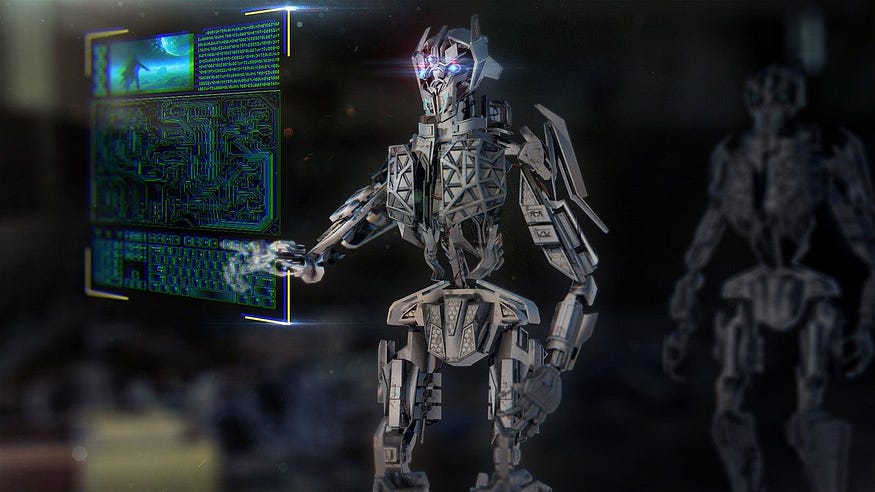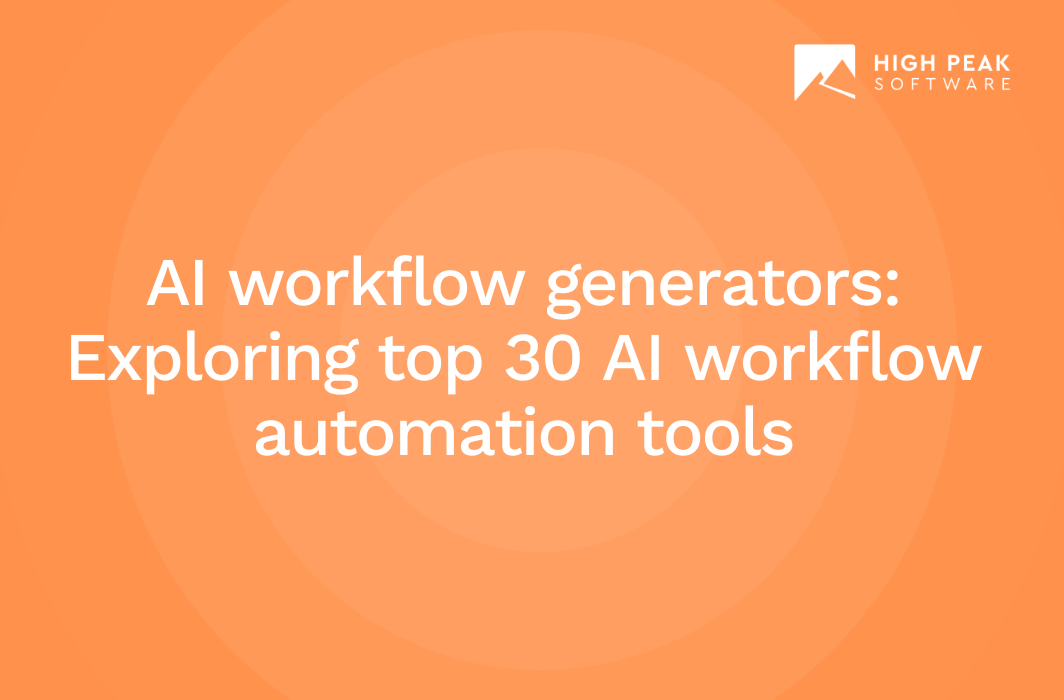Major Predictions for Artificial Intelligence in 2020
Radhika Madhavan
Director of Marketing

Decades ago, the concept of Artificial Intelligence (AI) was considered science fiction. It seemed that the idea of a machine interacting with a human in a human-like manner was just unlikely. However, today, AI dominates our day-to-day life. From looking up places on online maps in real-time on our smartphones to complex tasks such as quantum computing, artificial intelligence has become a way of life.
For businesses, the past year saw quite a few radical innovations in the field of artificial intelligence, with virtual home assistants, automated vehicles and this year there’s more to come.
This article lists some of the major predictions about AI and how it will impact different industries positively.
Major Predictions for Artificial Intelligence in 2019

New job markets
Ever since AI was adapted into the organizational workflow, the fear of human unemployment impelled by the human perception of machines has raised a significant alarm among the working population.
While there is some truth to the statement that jobs may be replaced, it is safe to say that AI would be more of an augmentation/enhancement to human workforce rather than eliminating it. AI technologies will replace certain tasks of a job but not the job itself. And in some industries, it is expected that inception of artificial intelligence in the workflow will give rise to entirely new jobs.
For instance, doctors cannot be replaced by machines, but AI technologies can assist them in important, supporting tasks like documentation or reporting. Similarly, as AI finds its way into other areas, industries will see a growth in human employment on the technical front, where the workforce is educated on its usage. So, as AI systems are trained in certain supporting aspects of the job, working professionals can continue to focus on actual work.
Automated transport
The popular notion about automated transport is that it provides self-driven cars and nothing more. The fact is that there is more to it than what is common knowledge.
Automated vehicles monitor several data points and record lots of information every second. They generate alerts for checking engine oil and lights and even indicate low battery. By using the information fed to it, the AI of the automated vehicle can access your calendar, read your schedule and drive you to the destination without you having to instruct it to.
Not just that, they also alert you to safety and predict what measures must be taken to avoid any mishap. Companies like Tesla and Waymo, which is run by google are in the process of designing automated cars that will offer public ride hailing services. These vehicles will be equipped to learn how to navigate and drive the roads, respond to the vicinity of the vehicle and anticipate the movements of vehicles and pedestrians as well.
Transparent Artificial Intelligence
Data transparency was a topic of hot debate this year with leading companies like Facebook and Google facing heat from the public. People demanded to know why and how their data was being used and whether it was safe for them to share it on the internet.
This led AI experts to focus on designing softwares that are transparent and will prioritize on safeguarding and protecting customer data. Measures are being taken in order to increase the transparency of AI.
Adjusting bias
This year the focus has shifted on developing solutions to adjust bias in artificial intelligence systems. An AI system is dependant on the data it is fed and trained with by humans.
What this means is that if the training data contains gender, racial or other biases, chances are that the AI system will be biased as well. For instance, in a certain geography, a person of specific religion or race or nationality may be suspected to be a criminal offender. But this is individual or a societal bias that is contrived by humans. So when an AI has to predict whether a person will commit a crime or not, this bias may get reflected in the prediction.
To mitigate this problem two important steps need to be taken: first step is to develop a more optimized algorithm with better design. And the second is to construct an unbiased data set to train this algorithm using machine learning.
In all actuality, society can benefit from having AI systems that are trained to not only avoid bias but also assist humans in doing the same while making important decisions such as those needed in recruitment of candidates, criminal law and prosecution, crime prediction, language translation etc.
Moderating and mitigating fake news
The rise of social media and its usage has come with its own implications, one of them being the circulation of fake news and trolls. This is problematic because studies have shown that most users cannot differentiate between real news and fake news.
What’s worse is that fake news is shared more often than real news on social media platforms. This can have lasting impacts especially after the damage is done. Case in point: circulation of fake news affected polls during elections in the US.
Companies are in the process of developing artificial intelligence systems that will separate the real and fake news and stop sharing and resharing of online trolls. These systems will also be able to identify hate speech, toxic comments and hateful responses and prevent them. Factually speaking, it may be impossible to completely prevent the issues of trolling on social media. However, intelligently trained systems can restrict the spread of such information and, therefore, reduce the confusion around it.
Industries benefiting the most from Artificial Intelligence in 2019
AI is interwoven into our everyday lives and is slowly taking over the business world by storm. Most of us, perhaps even all of us use AI in our daily tasks without giving it much thought. And this will only escalate in the future as many industries are now adopting AI systems into their workflow.
Banking
In the banking sector, the customer service department is one of the most important divisions. To improve the same, banks are adopting chatbots and other automated services to ensure that communication between the customer and the bank is smooth and queries are resolved quickly.
Another aspect in which the intervention of AI has created a major impact is that of fraud detection. In the banking sector AI systems have excelled in successful implementation of neural network techniques to detect and report fraud activities and ensure data security.
Apart from banking, on a broader spectrum in the finance aspect, cryptocurrency is one other industry that is largely influenced by artificial intelligence.
Chatbots
People are increasingly using chatbots through our integrated messaging mobile applications or through messaging pop-ups on websites. And while the concept isn’t relatively new to us, it is surely making waves in various aspects of business like customer service, which is the backbone of an organization’s success and revenue. Every organization wants their customers to have a smooth and hassle free customer experience that can be described in one word — convenient.
But how does AI fit into this?
The role of AI in chatbots is based on machine learning or more specifically Natural Language Processing (NLP). It works on a technique called the Sense-Think-Act cycle. Whatever we speak/type is is sent to the AI agent and this information is converted into a machine understandable language. The next step is a decision making process where the chatbot prepares an expected list of questions beforehand and makes necessary changes as it goes along, if required.
Thereby, it enables easy access and quick responses to customers looking for a solution in real time. However, if during the conversation, the chatbot infers a complex situation, it allows for human assistance by referring the customer to the agent. Major industries such as banking, retail, healthcare etc are deploying chatbots into their customer service functions in order to provide better customer service and to capitalize on business.
Interactive and conversational customer service through Artificial Intelligence
International corporations have a wide network of customers across the globe. To provide top-quality services to their customers, they need a network that is strongly connected and easily accessible. Essentially, this means that most communication will gradually move from typing to speaking to machines.
Virtual assistants like Google Home and Alexa are the best examples to understand how impactful AI can be in conversational customer service. Simplest of tasks like ordering a pizza, updating your calendar, sending emails or even planning a vacation can be done by these systems. When we talk about AI assistants, Siri and Cortana, most of the responses were pre-recorded and sometimes didn’t make much sense. But, new technologies are being developed now to have more real time responses and include more natural languages, thus, making it easier for the customer.
Marketing
In the marketing world, data is a defining factor. There is no limit to how much data and what kinds of data can be useful but it is always growing in quantity. In other fields of operation, compiling and cleansing data from various sources and formats in one place is important. This is important for marketing also.
The data has to be organized and updated as and when required. For instance, while preparing revenue reports or statistics, we access data from various sources. A lot of analysis and calculations are involved as well. This task can be done by an AI, because it can analyze high volumes of data in less time.
Finance: Cryptocurrency & Blockchain
Shortly after being introduced into the market, cryptocurrency became a sensation with Bitcoin and Litecoin and Ethereum as buzzwords. A lot has been said about how cryptocurrency powered by AI is going to be the future of finance.
This exact technology which goes by the name of Blockchain is the real hero behind the working of AI in Cryptocurrency. In a market as competitive as finance and trading, algorithms based on AI are able to make investment decisions, predict emerging market trends and analyse them to provide statistics.
Artificial Intelligence in Healthcare
The healthcare industry stands to benefit in more ways than one by introducing AI systems in the workplace. Hospitals and clinics have to deal with large amounts of different kinds of data ranging from patient records to medical data spread across different departments and several patients.
A lot of time gets lost in the process of manual data entry and due to this, the quality of service may sometimes be affected. AI systems are being used to digitize the data such as patient records for quick access rather than sifting through lots of paperwork. Important functions such as patient medical data is now computerized and not in paper form. This means no more form-filling and ticking boxes, because it will be taken care of by virtual assistants to input the data and to extract useful information when required.
AI enabled systems can also remind the patient to take prescribed medication by setting reminders. The most important use of AI in healthcare stems from its ability to diagnose illnesses ahead of time. This serves as a powerful tool in matters of life and death where the outcome is heavily dependant on the healthcare provider. New technologies are being designed to help doctors and nurses across the globe with day to day mundane tasks as well as complex ones to ensure any complications that can go overlooked are avoided.
Conclusion
The deeper we delve into the emerging world of artificial intelligence, the more the capabilities of AI we uncover.
This impactful technology is going to influence major industries, homes and change our lives for the better. The future of AI looks promising as ever and experts in the field believe that the world might be in for the second industrial revolution.
If you’d like to publish us in your publication, please reach out to us at marketing@highpeaksw.com




